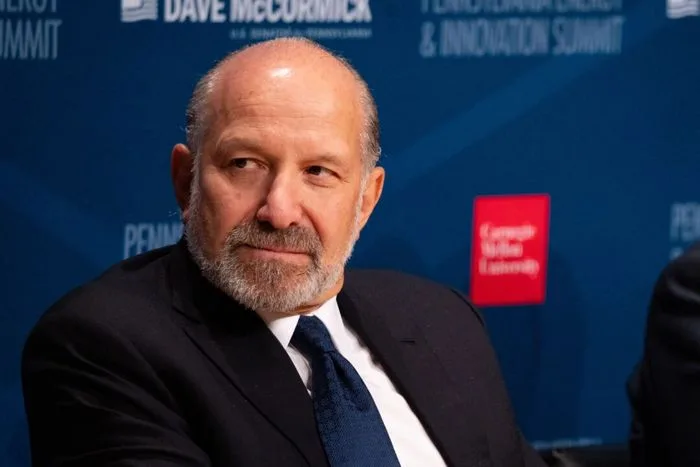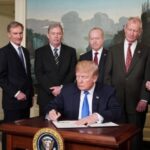By Jacob Burg
Commerce Secretary Howard Lutnick said on July 20 that the United States is still aiming to leave a 10 percent baseline tariff on many smaller countries, despite recent comments from President Donald Trump that suggested that the tariff level could be higher.
Lutnick told CBS’s “Face the Nation” on July 20 that the Trump administration was not looking to increase the 10 percent baseline tariff level it imposed on many smaller nations in early April, when other larger U.S. trading partners saw reciprocal tariffs as high as 50 percent.
“You should assume that the small countries, the Latin American countries, the Caribbean countries, many countries in Africa, they will have a baseline tariff of 10 percent,” he said.
After President Donald Trump had suggested recently that baseline tariff rates could exceed 15 or 20 percent, Lutnick’s comments on July 20 gave some relief to those hoping for smaller baseline levies on nations without significant trade imbalances or nontariff barriers with the United States.
Trump sent letters to dozens of nations earlier in July, informing them of their tariff levels if they do not negotiate better trade deals with his administration by Aug. 1.
Lutnick told CBS that “bigger economies will either open themselves up or they’ll pay a fair tariff to America.”
He also suggested that Aug. 1 would be a hard deadline, particularly since Trump had initially given a 90-day extension to his early April tariffs, effectively granting U.S. trading partners until July 9 to negotiate deals.
Many saw the Aug. 1 date as a second extension, despite denials from the administration.
Lutnick said no country could “negotiate away” tariffs entirely and that virtually all U.S. trading partners would see a tariff of some kind on their imports into the United States.
“Ten percent is definitely going to stay,” he said. “Many countries will pay higher.”
Public opinion on the Trump administration’s tariff agenda has been mixed, according to a new poll CBS released on the morning of July 20.
Roughly 61 percent of respondents said the administration is putting “too much” focus on levying tariffs on U.S. trading partners, while 70 percent said it’s not putting enough focus on lowering prices. Overall, 60 percent said they oppose the new tariffs on imports, while 40 percent said they support the duties.
Regarding prices, 64 percent said they disapprove of how the president is handling inflation, which has been slowly increasing over the past few months.
Lutnick shrugged off the poll findings and said that the American public is “going to love the deals that President Trump and I are doing. They’re just going to love them.”
He also disputed claims that Trump’s tariffs will lead to higher prices for consumers.
“I think you’re going to see inflation stay right where it is,” he said.
As U.S. trading partners get closer to the Aug. 1 deadline, with less than two weeks left, countries and blocs like Japan, South Korea, and the European Union are in continued discussions with the Trump administration over trade.
So far, deals or tentative deals have been inked with China, the UK, Vietnam, and Indonesia.
Whether Beijing and Washington can agree to a final trade agreement will be a critical issue, as both nations have, for weeks, been in a trade truce that is set to expire on Aug. 12.
Lutnick said he was confident he could strike deals with both Canada and the European Union, which are two of America’s largest trading partners.
“So I think all these key countries will figure out it is better to open their markets to the United States of America than to pay a significant tariff. And Donald Trump has made that point clear,” Lutnick said.
Andrew Moran contributed to this report.





